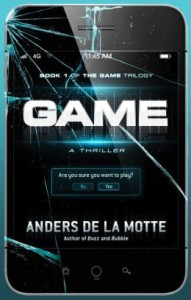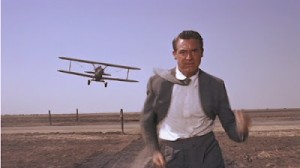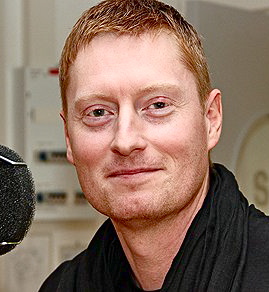“Mel Gibson in Conspiracy Theory, Gene Hackman’s character, Brill, in Enemy of the State, that’s what he was turning into. The obsessive, the lone lunatic, the conspiracy nut who lived his life in discussion forums…He might as well get his own home page, a cottage in the woods, and a wall covered in newspaper cuttings; then everything would be perfect.” – HP Pettersson, “a slacker with a big ego.”
 An action-packed debut novel in which reality and virtual reality overlap, Game reflects the game of life with an alarming twist, one that raises serious questions about how much control over our own lives any of us readers might be willing to give up in exchange for the excitement and ego-stroking of an on-going virtual reality game. Here, Henrik “HP” Pettersson, a young Swede in his thirties, with too little to do and no sense of responsibility, finds a cell phone on the commuter train to Stockholm. Not surprisingly, he decides to keep it. When he opens it, he discovers a message: “Wanna play a game?” He ignores it, wanting only to figure out how to use it as a phone. When the message changes to “Wanna play a game, Henrik Petterson?” he is stunned. And when the phone will not take no for an answer, HP concludes that some of his friends are playing a trick on him. He decides that the only way to get back at them is to play the game and beat them at it.
An action-packed debut novel in which reality and virtual reality overlap, Game reflects the game of life with an alarming twist, one that raises serious questions about how much control over our own lives any of us readers might be willing to give up in exchange for the excitement and ego-stroking of an on-going virtual reality game. Here, Henrik “HP” Pettersson, a young Swede in his thirties, with too little to do and no sense of responsibility, finds a cell phone on the commuter train to Stockholm. Not surprisingly, he decides to keep it. When he opens it, he discovers a message: “Wanna play a game?” He ignores it, wanting only to figure out how to use it as a phone. When the message changes to “Wanna play a game, Henrik Petterson?” he is stunned. And when the phone will not take no for an answer, HP concludes that some of his friends are playing a trick on him. He decides that the only way to get back at them is to play the game and beat them at it.
HP’s first assignment, to steal the red umbrella being carried inside a bag by another passenger, is easy, and HP earns 100 points, receives the Rules of the Game, and is then shown on-line videos of his own performance as he steals the red umbrella. He continues with the Game, and as his assignments become more complex, HP realizes that the Game is much bigger than he thought – it is not a creation of his little group of friends. Instead, a powerful Game Master is “running” carefully selected players throughout the country and around the world, controlling their behavior by manipulating their psyches. With no record of success in other areas of his life, HP quickly becomes more and more addicted to the praise he earns when he performs well, and he glories in his starring role in the videos of his performances during his various assignments, which are judged by other participants. Gradually, the assignments become more complex and more dangerous, not only to him but to the community as a whole, and HP becomes one of the highest point-scorers among all the players of the Game throughout the world, a “hitman in the service of the Game Master.”
During the entire time that HP is participating in the Game, the author is alternating the point of view between HP and a young woman, Rebecca Normen, whose focus and ambition are complete contrasts to HP’s laziness. With little to interest the reader in terms of her personality, Rebecca is a cipher, working a security detail for the police as a “personal protection coordinator,” a bodyguard for one of the ministers of the Swedish government. When she saves the minister’s life during an apparent terrorist attack, she is promoted to the Alpha group, an elite group being formed for protection for the high-ranking officials who will soon be coming to Stockholm as Sweden takes over the EU presidency. Gradually, the reader discovers Rebecca’s secrets and her hidden past.
As the novel develops at breakneck speed, the action never falters, with one surprise after another as HP discovers the hazards of the game, the fact that absolutely nothing in the Game is accidental, that “some things are true, and some were stitched together just for [him], that he was “a Pawn in the Game, no more, no less…A pathetic little pawn that could easily be sacrificed so the Game could move on.” As one of his more astute friends tells him, “The Game gives you your very own starring role, complete with a fan club…Suddenly you’re the leading man instead of a spectator. From nobody to VIP in the space of a few days…Pretty soon you can’t get enough of [the attention]. And all the Game asks in exchange for this massive trip is a few tiny little assignments.” Even when he realizes that the majority of the most important political “accidents” and successes on the world stage are actually controlled by minions of the Game Master who have no contact with each other, HP still wants to continue playing. Eventually, however, he is determined to learn more about the Game and the Game Master.

A later assignment for HP is to remove the wheels of a Ferrari in Sture Square Plan, a high-end shopping area which features this "mushroom."
Readers who spend a good deal of time on social media – Facebook, Twitter, YouTube, virtual reality games, discussion forums, networks, and even blogs – may find the premise of this plot far more “realistic” than do other readers, but I suspect that everyone will be chilled by the parallels drawn by Swedish author Anders de la Motte to some of the events in the news recently about “lone lunatics” and those who become so caught up in virtual reality that the rules of actual reality no longer seem to apply, at least to them. In its political implications, that some unseen Game Master (or ideology) can impel some people to perform terrible actions they would never think of on their own, and do it anonymously via a computer or Game, the horror becomes even more vivid, raising once again the conflicts between security and freedom on the internet and the use of human drones to perform often small, individual actions in the service of a larger, more sinister goal, on which people can even place bets. The excitement of the novel keeps all these issues fresh as the plot develops, no doubt a result of the author’s own experience as a police officer and director of security at “one of the world’s largest IT companies.”

While hiding in a rural area, HP is discovered and must run from a plane, a scene in which he likens himself to Cary Grant.
For all its excitement, the novel is sometimes confusing as the points of view shift back and forth, and the speaker is not always clear, sometimes requiring some page flipping to determine whose point of view is being revealed. Flashbacks and the inclusion of extraneous dreams do less to expand the characters than to confuse the reader with new information not fully integrated and sometimes irrelevant. The writing is often uneven – sometimes lively, and sometimes much less so. Since there is little character development, the novel often reads like the précis of a film – and this novel has the potential to be a blockbuster film! – even better than the novel itself. Since Game is the first part of a trilogy, and will be followed by Buzz, coming out in January, and Bubble, coming in February, it will be especially interesting to see how this story concept develops further in the next two installments. Surprises in the conclusion suggest some ominous new directions.
Photos, in order: The author’s photo by Sveriges Radio, appears on http://hedengrensbokhandel.blogspot.com
The photo of the NK department store, shows the iconic clock tower and clock, which HP must stop in one of his early assignments. Photo by Holger Ellgaard on http://commons.wikimedia.org/wiki/File:Varuhuset_NK.jpg
Sture Square Plan, a high-end shopping area, is the site of another HP assignment, in which he must remove the wheels of a Ferrari. http://en.wikipedia.org/wiki/Stureplan Photo by Varfgklo.
Cary Grant, to whom HP compares himself in a scene in which he must outrun a plane, is seen here in North by Northwest: http://www.ritholtz.com/
ARC: Emily Bestler Books, Atria, Simon and Schuster


